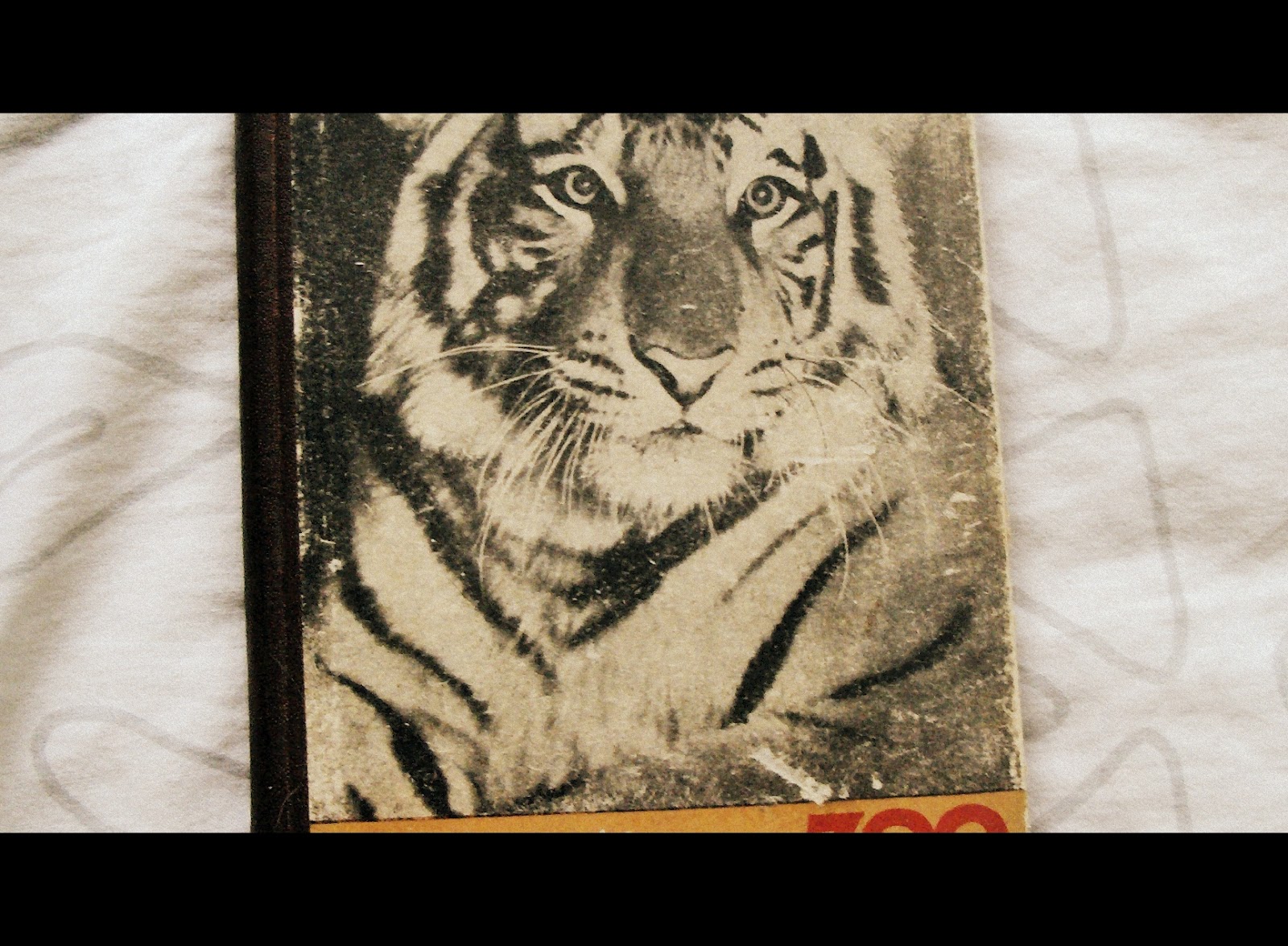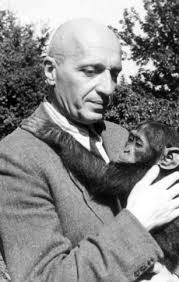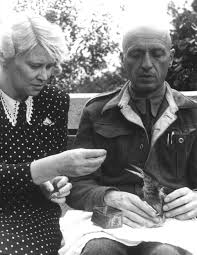Post by Bonobo on Jan 31, 2017 12:54:18 GMT 1
Ads I a child I used to read his books about animals. They were printed on cheap paper, black and white photos were bad quality, but those publications seemed so fascinating, the writer knew how to attract the readers with interesting stories which were so much more important than glossy paper and cutting edge pictures.




I was only interested in animals which have remained my passion till today. I knew nothing about the writer and his equally fascinating past. I learnt about it just recently.

Facts:
In his youth, he practised sprint running and had very good results.
He contributed to the creation of the zoo in Warsaw and became its director, till 1951.
Together with his wife, he hid hundreds of Jews in the zoo during German occupation.
He joined Polish resistance against German occupiers and participated in secret teaching during occupation.
Later he fought in Warsaw Rising and was wounded.
After WW2, ousted by communist Poles from his post, he wrote books and lectured about animals.
What a decent man! I wish I would have his courage in times of trouble if I lived then.
en.wikipedia.org/wiki/Jan_and_Antonina_%C5%BBabi%C5%84ski
Polish underground activities
Żabiński was a Polish agricultural engineer and zoologist who saved many Jews in Warsaw. On the eve of the German occupation, Żabiński was director of the Warsaw Zoo and a teacher of geography in the private gymnasium of Kreczmara. The Germans appointed him superintendent of the city's public parks as well. Availing himself of the opportunity to visit the Warsaw ghetto, ostensibly to inspect the state of the flora within the ghetto walls, Żabiński maintained contact with prewar Jewish colleagues and friends and helped them escape and find shelter on the "Aryan" side of the city.
Many cages in the zoo had been emptied of animals during the September 1939 air assault on Warsaw, and Żabiński decided to utilize them as hiding places for fleeing Jews. Over the course of three years, hundreds of Jews found temporary shelter in these abandoned animal cells, located on the eastern bank of the Vistula River, until they were able to relocate to permanent places of refuge elsewhere. In addition, close to a dozen Jews were sheltered in Żabiński's two-story private home on the zoo's grounds. In this dangerous undertaking he was helped by his wife, Antonina, a recognized author, and their young son, Ryszard, who nourished and looked after the needs of the many distraught Jews in their care. At first, Żabiński paid from his own funds to subsidize the maintenance costs; then money was received through Żegota: Council to Aid Jews.
An active member of the Polish underground Armia Krajowa (Home Army), Żabiński participated in the Warsaw Polish Uprising in August and September 1944. Upon its suppression, he was taken as a prisoner to Germany. His wife continued his work, looking after the needs of some of the Jews left behind in the ruins of the city.
Legacy
On October 30, 1968 a tree planting ceremony was held at Yad Vashem honoring Righteous Among the Nations, including Jan and Antonina Żabińska.[2]
In 2007, the U.S. writer Diane Ackerman published The Zookeeper's Wife, a book about the Żabiński family's wartime activities that draws upon Antonina Żabińska's diary. The Polish film director Maciej Dejczer has announced plans for a film about Żabiński's wartime activities.[4]
A film about the couple based on the book by Ackerman, The Zookeeper's Wife (film) was filmed in 2015, and is scheduled to be released on March 31, 2017, with American actress Jessica Chastain portraying Antonina and Flemish actor Johan Heldenbergh portraying Jan.[5]










I was only interested in animals which have remained my passion till today. I knew nothing about the writer and his equally fascinating past. I learnt about it just recently.
Facts:
In his youth, he practised sprint running and had very good results.
He contributed to the creation of the zoo in Warsaw and became its director, till 1951.
Together with his wife, he hid hundreds of Jews in the zoo during German occupation.
He joined Polish resistance against German occupiers and participated in secret teaching during occupation.
Later he fought in Warsaw Rising and was wounded.
After WW2, ousted by communist Poles from his post, he wrote books and lectured about animals.
What a decent man! I wish I would have his courage in times of trouble if I lived then.
en.wikipedia.org/wiki/Jan_and_Antonina_%C5%BBabi%C5%84ski
Polish underground activities
Żabiński was a Polish agricultural engineer and zoologist who saved many Jews in Warsaw. On the eve of the German occupation, Żabiński was director of the Warsaw Zoo and a teacher of geography in the private gymnasium of Kreczmara. The Germans appointed him superintendent of the city's public parks as well. Availing himself of the opportunity to visit the Warsaw ghetto, ostensibly to inspect the state of the flora within the ghetto walls, Żabiński maintained contact with prewar Jewish colleagues and friends and helped them escape and find shelter on the "Aryan" side of the city.
Many cages in the zoo had been emptied of animals during the September 1939 air assault on Warsaw, and Żabiński decided to utilize them as hiding places for fleeing Jews. Over the course of three years, hundreds of Jews found temporary shelter in these abandoned animal cells, located on the eastern bank of the Vistula River, until they were able to relocate to permanent places of refuge elsewhere. In addition, close to a dozen Jews were sheltered in Żabiński's two-story private home on the zoo's grounds. In this dangerous undertaking he was helped by his wife, Antonina, a recognized author, and their young son, Ryszard, who nourished and looked after the needs of the many distraught Jews in their care. At first, Żabiński paid from his own funds to subsidize the maintenance costs; then money was received through Żegota: Council to Aid Jews.
An active member of the Polish underground Armia Krajowa (Home Army), Żabiński participated in the Warsaw Polish Uprising in August and September 1944. Upon its suppression, he was taken as a prisoner to Germany. His wife continued his work, looking after the needs of some of the Jews left behind in the ruins of the city.
Legacy
On October 30, 1968 a tree planting ceremony was held at Yad Vashem honoring Righteous Among the Nations, including Jan and Antonina Żabińska.[2]
In 2007, the U.S. writer Diane Ackerman published The Zookeeper's Wife, a book about the Żabiński family's wartime activities that draws upon Antonina Żabińska's diary. The Polish film director Maciej Dejczer has announced plans for a film about Żabiński's wartime activities.[4]
A film about the couple based on the book by Ackerman, The Zookeeper's Wife (film) was filmed in 2015, and is scheduled to be released on March 31, 2017, with American actress Jessica Chastain portraying Antonina and Flemish actor Johan Heldenbergh portraying Jan.[5]











